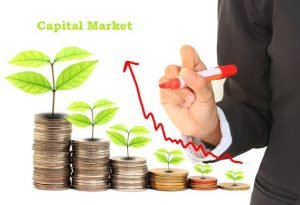Last updated on April 2nd, 2024 at 05:06 am
Behavioural economics examines the effects of cultural, social, psychological, and emotional factors in the decision-making process and how it affects economic theory.

It pulls many ideas and methodologies from other social sciences, like neuroscience, psychology, and economics.
Behavioural scientists study how different methods persuade public choice and how stock markets function. They also look at the decisions of both individuals and corporations to reach different conclusions.
How Behavioral Economics Differs From Traditional Economic Theory
Behavioural economics differs from traditional economic theory in several key ways:
Assumptions about Rationality: Traditional economic theory assumes that individuals are rational and make consistent decisions to maximise their self-interest. Alternatively, behavioural economics acknowledges that biases, emotions, and cognitive limitations bind individuals, which can lead to deviation from rational decision-making.
Decision-Making Factors: When describing decision-making, the traditional economic theory emphasises objective elements like prices, costs, and benefits. Behavioural economics considers subjective aspects that significantly impact decision-making, like social influences, cognitive biases, emotions, and psychological elements.
Prospect Theory: Behavioral economics introduces prospect theory, which challenges the traditional economic theory’s notion of utility maximisation. Prospect theory suggests that individuals evaluate potential gains and losses relative to a reference point and how the perception of risk and the tendency to be loss-averse influences their decisions.
The Impact of Behavioural Economics
The impact of behavioural economics has been significant in several areas:
Improved Policy Design
Behavioural economics has influenced policy-making by suggesting interventions to help individuals make better choices.
By understanding the factors that drive human behaviour, policymakers can design interventions that nudge individuals towards desirable outcomes, such as encouraging savings, promoting healthy behaviours, and increasing participation in beneficial programs.
Financial Markets and Investments
The study of behavioural economics has significantly impacted how we comprehend financial markets and investor behaviour.
It has drawn attention to the psychological biases that can cause market inefficiencies and asset price bubbles, such as herding behaviour and overconfidence.
Investment strategies are becoming more intelligent due to investors and financial professionals incorporating behavioural insights.
Consumer Behavior and Marketing
Behavioural economics has influenced the field of marketing and consumer behaviour. Understanding how individuals make choices and what factors influence their decisions has helped marketers design more effective strategies.
By leveraging behavioural insights, marketers can create persuasive messages, design pricing structures, and optimise product placement to align better with consumer preferences.
Personal Finance and Wealth Management
Behavioural economics has significantly impacted personal finance and wealth management. By recognising common biases and behavioural tendencies, individuals can make more informed decisions about saving, budgeting, investing, and retirement planning.
Financial advisors now incorporate behavioural economics principles to help clients navigate biases and achieve their financial goals.
How Behavioral Economics Shapes Your Financial Choices
Behavioural economics shapes your financial choices in several ways:
Cognitive Biases
Behavioural economics highlights the presence of cognitive biases that can influence your financial decisions.
For example, confirmation bias may lead you to seek information that confirms your pre-existing beliefs about an investment, ignoring contradictory evidence.
Anchoring bias may cause you to rely too heavily on initial information when making financial judgments. By being aware of these biases, you can be more cautious and objective in your decision-making.
Emotional Factors
Behavioural economics recognises the role of emotions in financial decision-making. Emotions such as fear, greed, and regret can impact your investment choices.
Fear of losses may lead to overly conservative investment strategies, while desire may drive you towards excessive risk-taking.
Knowing your emotions and their potential influence can help you make more balanced and rational financial decisions.
Loss Aversion
Behavioural economics emphasises loss aversion, the tendency to feel the pain of losses more strongly than the pleasure of gains. Loss aversion can make you overly cautious and reluctant to take necessary risks for potential improvements.
Understanding loss aversion can help you evaluate risks more objectively and avoid letting the fear of losses prevent you from pursuing profitable opportunities.
Social Influence
Behavioural economics highlights the impact of social influence on financial decisions. People often look to others for guidance and validation, leading to a herd mentality in investment choices.
Being aware of the power of others and understanding that their decisions may not always be rational or well-informed can help you avoid making impulsive or uninformed financial choices.
Present Bias and Delayed Gratification
Behavioural economics recognises the tendency for individuals to prioritise immediate gratification over long-term financial goals. This present bias can hinder your ability to save, invest, and plan for the future.
Awareness of this bias can help you implement strategies to overcome it, such as setting up automatic savings or using commitment devices to stay disciplined in your financial decisions.
Applying Behavioral Economics to Achieve Financial Success
Recognising and overcoming biases: Applying behavioural economics involves acknowledging cognitive biases that can hinder financial success, such as confirmation bias or loss aversion. You can make more objective and rational economic decisions by understanding these biases.
Setting clear goals and priorities: Behavioral economics strongly focuses on establishing clear financial priorities and goals. You can make more deliberate and focused decisions that contribute to long-term financial success by establishing your goals and matching your actions with those goals.
Automating savings and investments: Behavioral economics suggests leveraging automation to promote saving and investing behaviours. Setting up automatic contributions to savings or retirement accounts can overcome present bias and make it easier to achieve financial goals.
Designing effective budgeting systems: Behavioral economics emphasises the need for realistic and flexible budgeting systems. Rather than relying solely on willpower, incorporating behavioural techniques like mental accounting or “nudging” can help maintain discipline and encourage sustainable financial habits.
Seeking financial education and advice: Behavioral economics encourages individuals to seek financial education and advice to make better-informed decisions. Understanding financial concepts, investment strategies, and risk management can empower you to navigate the complexities of personal finance and make choices aligned with your goals.
Building accountability and support: Behavioral economics recognises the power of accountability and support in achieving financial success. Sharing goals with a trusted source can provide accountability and encouragement to stay on track and make responsible financial decisions.
Conclusion
The impact of behavioural economics on financial decision-making is significant, as it considers cognitive biases, emotions, and social dynamics. Enrolling in a financial services and capital market certification course is essential to gain a foothold.
Imarticus Learning’s IIM Lucknow Advanced Management Program in Financial Services and Capital Markets course offers a comprehensive curriculum that equips individuals with specialised knowledge and practical skills.
Consider enrolling in the financial services course to enhance your understanding of behavioural economics and excel in the dynamic world of financial services and capital markets.

